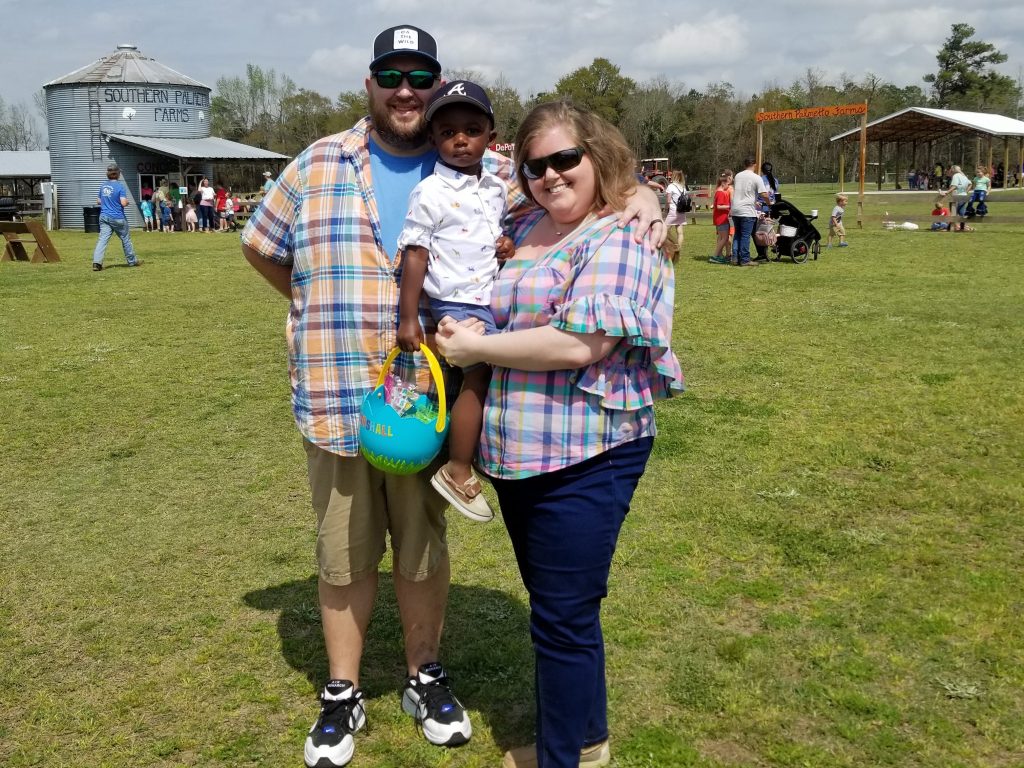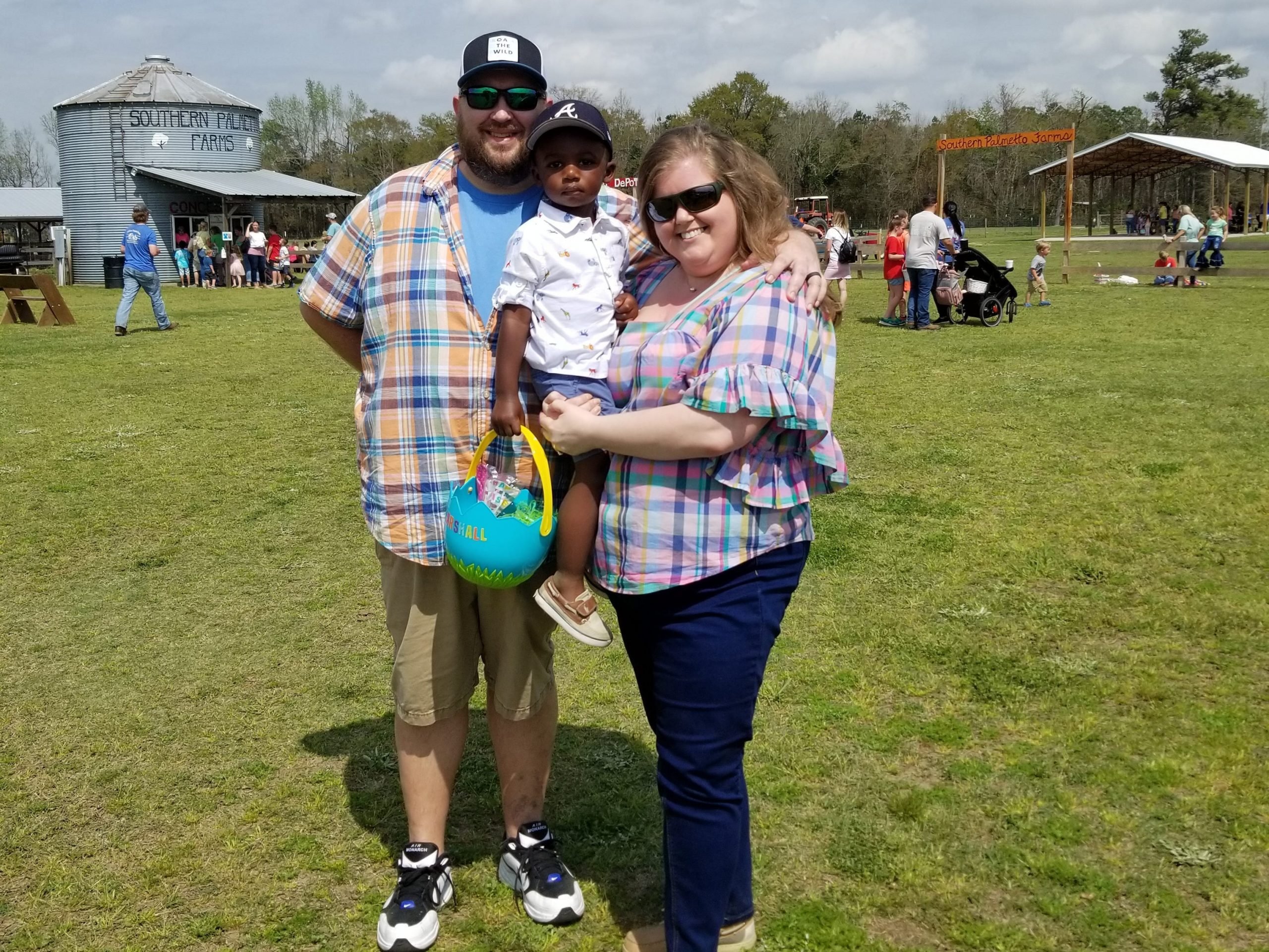
- Matthew Moore, 39, is the first US patient to receive a new, advanced type of artificial heart.
- The dad happened to land at Duke, where a trial testing the device was set to begin.
- The device, made with cow tissue, is intended to serve as a bridge before heart transplantation.
- Visit Insider's homepage for more stories.
Rachel Moore thought her husband Matthew was pulling one of his usual stunts. The 39-year-old, who'd won Rachel over almost 14 years before with his sly wit, suddenly slumped over in his hospital recliner at Duke University Hospital, where he'd arrived June 15 expecting to undergo heart bypass surgery.
But when she saw her husband's tongue sticking out and his eyes dilate, "I started screaming," Rachel, a nurse, told Insider.
For 45 minutes, clinicians performed chest compressions. They shocked his heart 16 times. Finally, he stabilized, but his life remained in danger for weeks as machines – and five more shocks – kept him alive.
But on July 12, Matthew woke up after receiving the first artificial heart transplant in the US. "It's a miracle Matthew is with us today," Rachel said.
The device is made from cow tissue
Millions of Americans experience heart failure, when the heart doesn't properly pump, each year. Late-stage patients need heart transplants to survive, but human hearts are in short supply and need to match a patient's blood type and body size.
Current solutions, like a left-ventricular assist device (LVAD), only support one heart chamber.
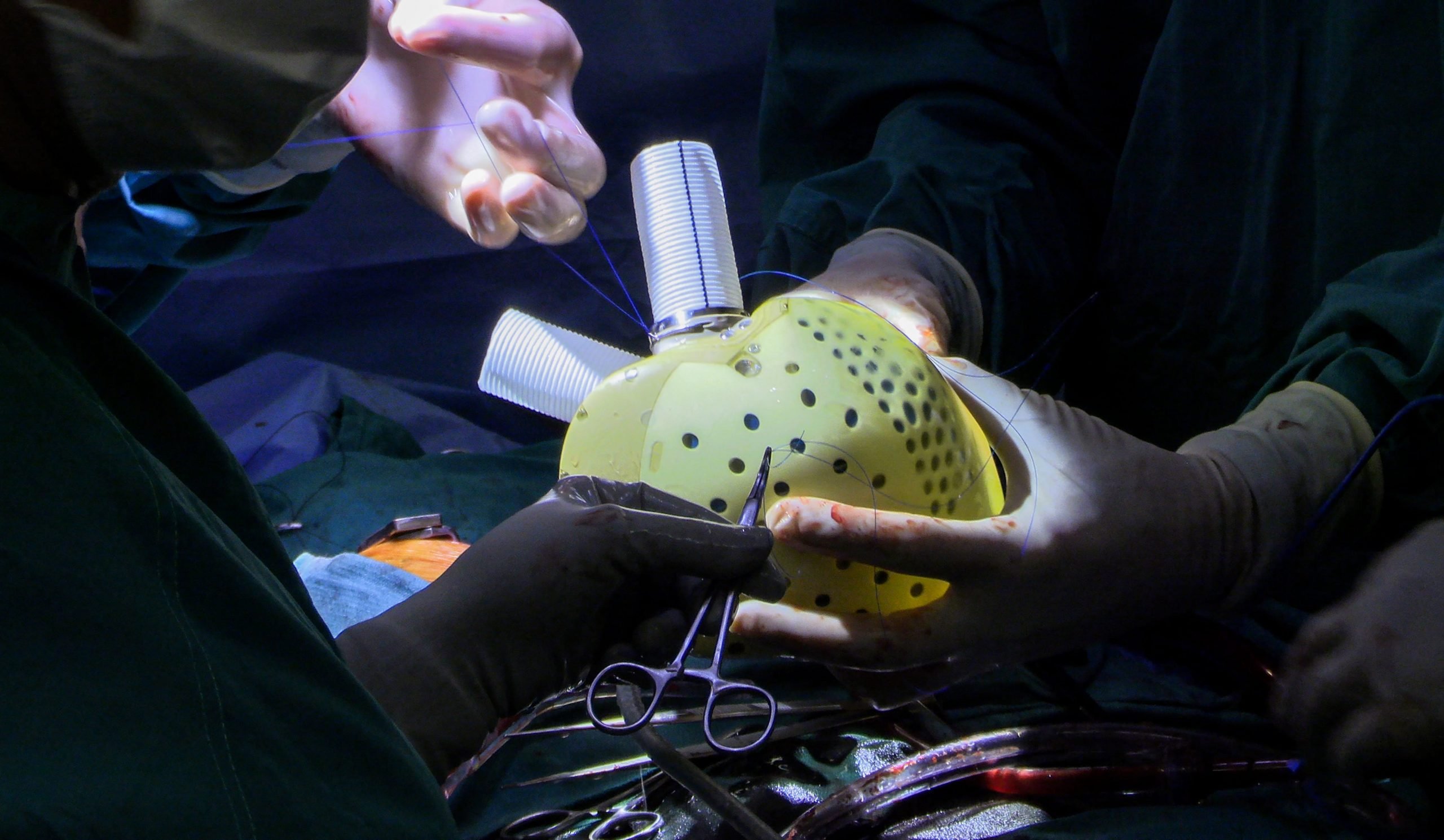
Enter the new total artificial heart, developed by CARMAT, a device is made from cow tissue that replaces half of the heart and doesn't pose the same risks of blood clots and stroke as the LVAD. It's powered by a battery pack that remains on the outside of the body.
While one other total artificial heart exists in the US, it pumps blood at an even rate. CARMAT's adjusts to the patient's activities.
The device was is currently approved for use in Europe. While one day it may be used long-term, Matthew is the first patient in a US study testing it as a bridge while people wait or get strong enough for transplantation.
The surgery took eight hours
Matthew was an ideal candidate: He's facing life-threatening heart failure affecting both sides of his heart, young, and at 6-foot, 270-pounds, he's "of ample size," the surgeons said - important because the device is too bulky for smaller people.
He'd been transferred to Duke, home to a top heart transplant program, from a smaller hospital closer to their Shallotte, North Carolina, home, which wasn't equipped to deal with heart failure. It just so happened the hospital is one of three in country that had been selected to join CARMAT's first clinical trial in the US.
Rachel said she had no hesitations enrolling her husband. "I turned the wife off and turned the nurse on and was fascinated" by the promise of the device, she said in a press conference. She also trusted Duke physicians, telling Insider Matthew is a diehard fan of the basketball team.
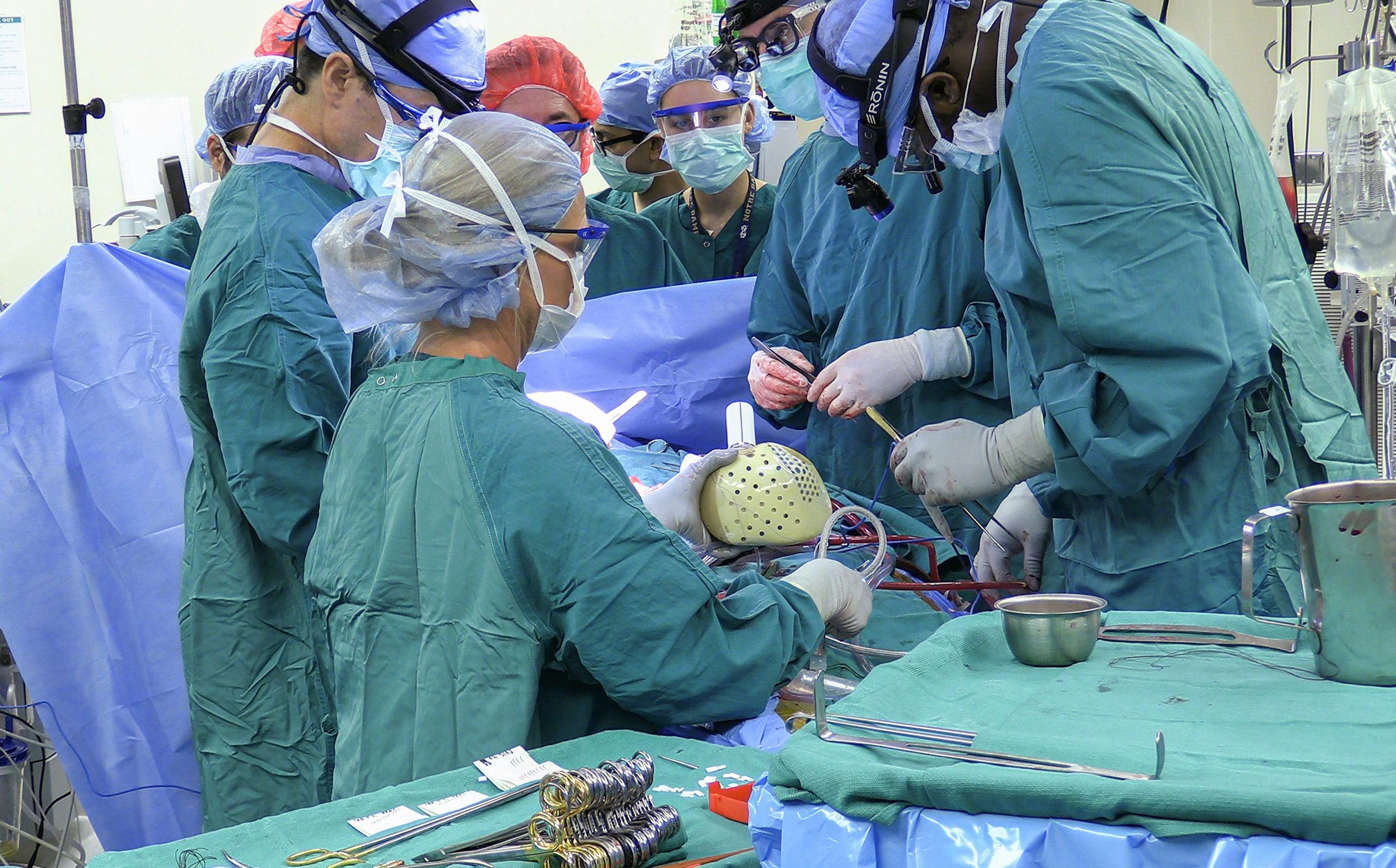
To conduct the surgery, Dr. Jacob Schroder and Dr. Carmelo Milano opened up Matthew's chest, removed the ventricles (the chambers that pump blood out), and attached the device.
It took about eight hours and was more complicated than a human heart transplant, in which you "just" remove one heart and implant the other, Schroeder said in the press conference. "All the steps are painstaking and critical," he said.
Matthew is now undergoing rehab to get strong enough for a human heart transplantation, hopefully in a few months.
Matthew and Rachel recently adopted their foster son, Marshall
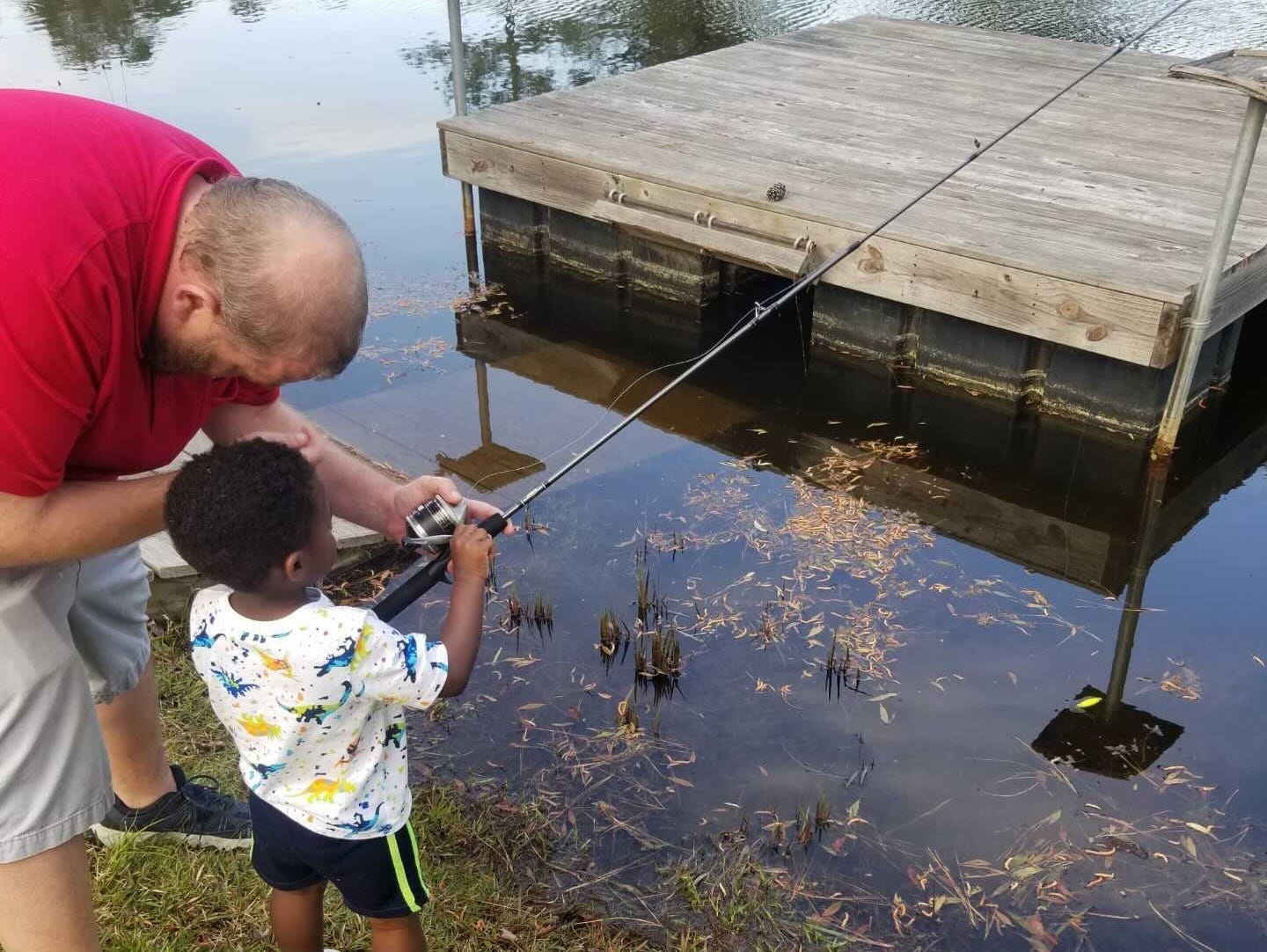
Matthew, a paint specialist, has a unique ability to see more of the color spectrum than the average person, Rachel said.
But his real purpose is as father to their 3-year-old son, Marshall, whom they fostered at 45 days old and adopted in December after a lengthy process. "He is the sparkle in my eye, and he and his daddy are best buds, they do everything together," Rachel said, from singing to visiting farm animals to napping.
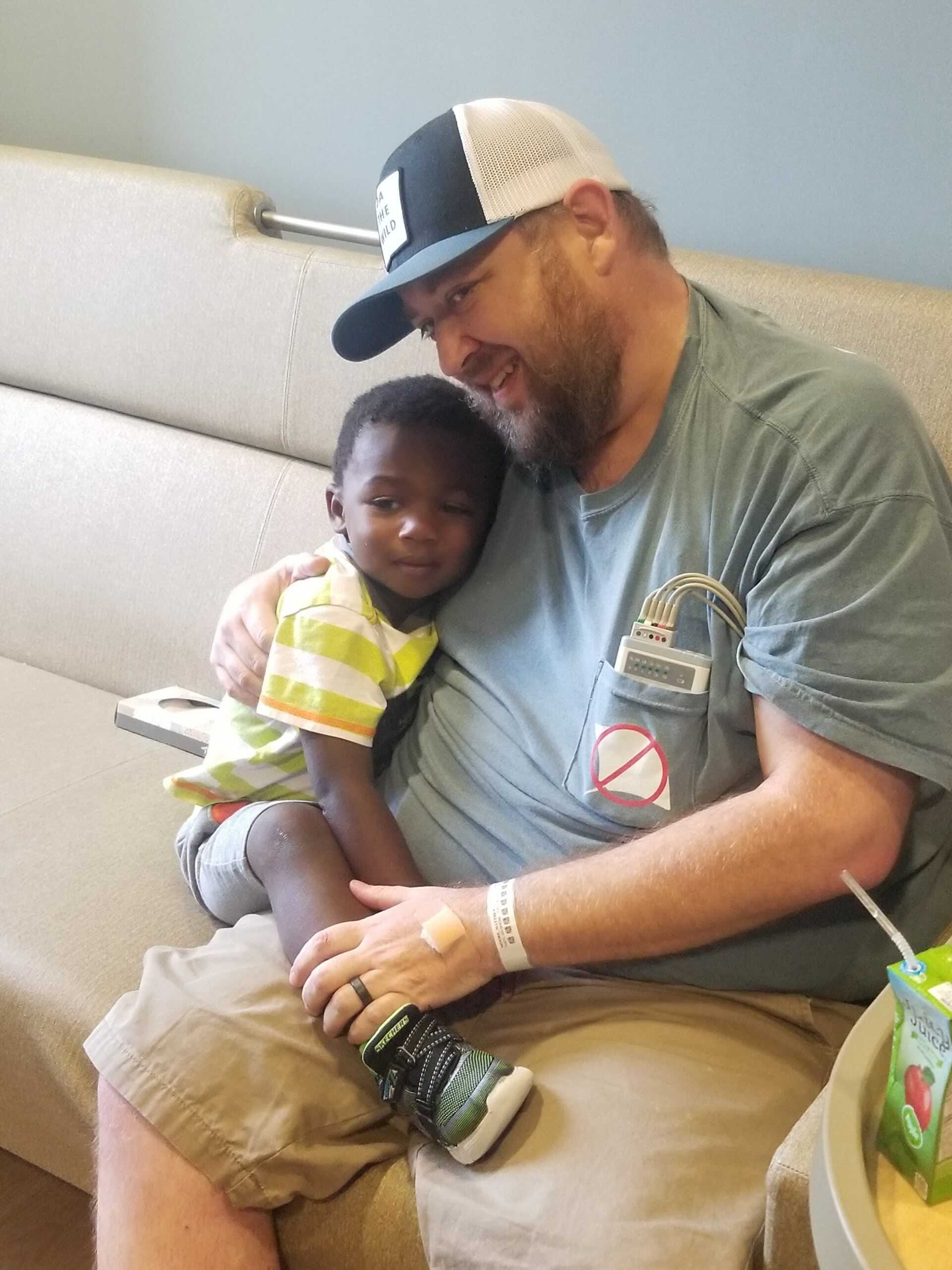
Rachel Moore
"I knew who [Michael] was as a person. I knew who he was as a best friend. I knew who he was as a husband," Rachel said. Now she knows "he was meant to be a daddy."

